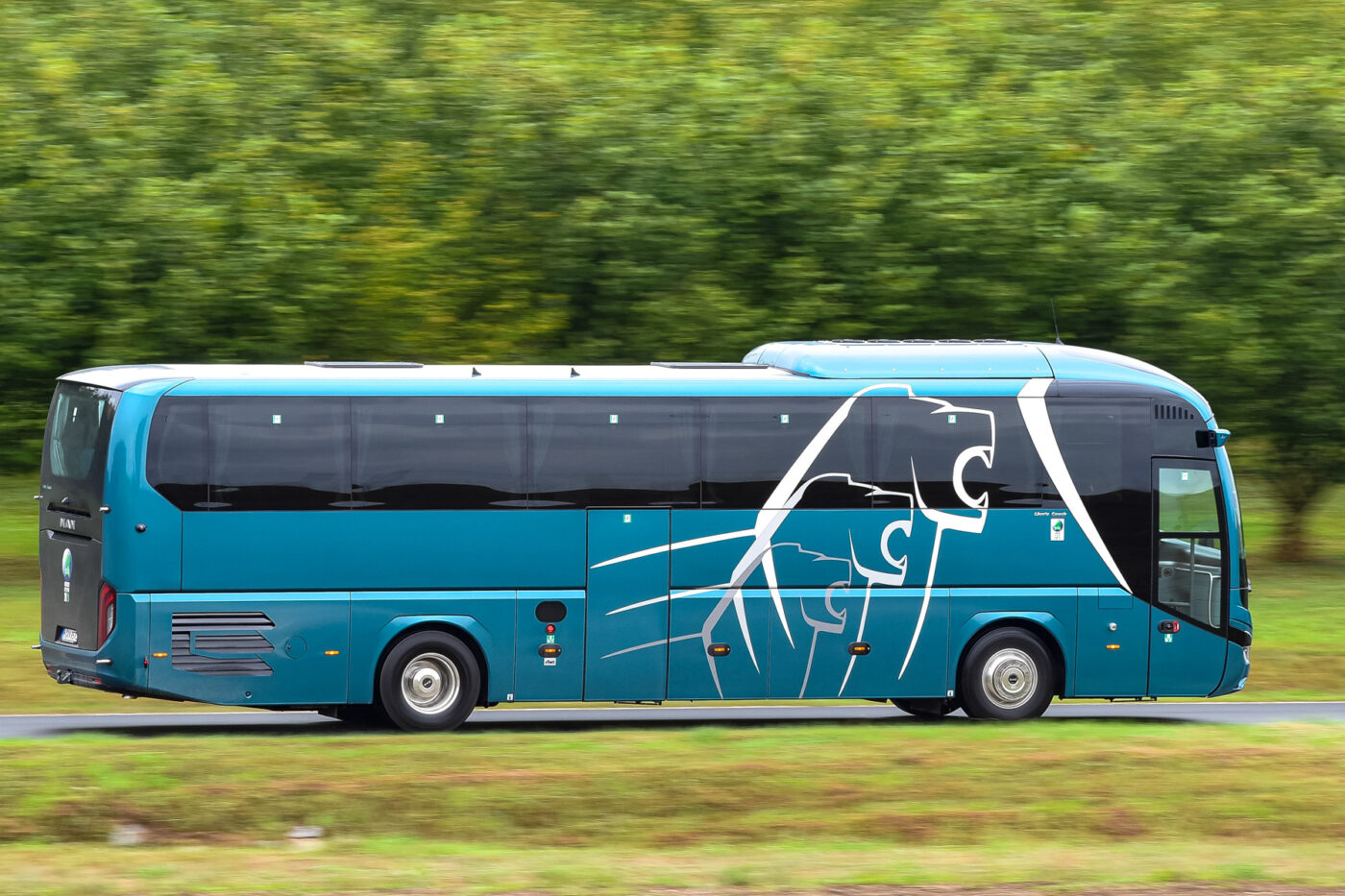MAN to start building electric buses in Ankara in 2025
This was explained by Barbaros Oktay, who has been in charge of the bus business at MAN since 2023, in an interview with the Sustainable Bus portal. The Lion’s Coach BEV should be able to be charged with up to 375 kW via a CCS plug. Oktay, who has been Head of Bus at the Traton subsidiary since 2023, did not provide any further details on the battery and range of the coach during the interview.
The combustion model utilises a diesel engine with a power output of up to 382 kW and offers space for up to 61 passengers. The vehicle is available in various configurations from 12.1 to 13.9 metres in length with two or three axles. The shortest version can accommodate a maximum of 53 passengers and 11.7 cubic metres of luggage, while the three-axle MAN Lion’s Coach L offers 61 seats. Oktay did not reveal whether this choice will also be available for the BEV version or whether MAN will initially electrify only one body variant.
Instead, he stated that MAN’s bus division is “fully focussed on BEV technology”, although trials with hydrogen-powered combustion engines are also underway in the truck division. “Concerning the hydrogen engine, we sure have some joint projects, but no strategy decided so far to bring any series bus or coach product on the road,” says Oktay. For good reason: “We are fully concentrated on BEV technology, as according to our studies, it allows customers to use 75% of the energy, with hydrogen vehicles using just 25%. And this has an impact in terms of Total Cost of Ownership (TCO).”
Electric coaches are not just about TCO, as they do not travel on a predictable route like a city bus and draw their power for the next day at night from their own charging station in the depot. Coaches are more flexible when travelling and require a correspondingly fast charging station at a wide variety of locations. “At the moment OEMs’ projects are much more ahead than infrastructure development,” says Oktay. “Now our customers in particular need a far-sighted political framework, financial planning security and speed in the development of the charging infrastructure as well as an efficient power grid.”
After the electric coach, MAN is planning an electric high-floor intercity bus, which is due to be launched on the market in 2026 or 2027. Barbaros Oktay emphasises that MAN will go fully electric in the city and intercity segment and will not invest in meeting the Euro 7 standard. However, MAN will fulfil the Euro 7 standard for coaches. For this reason, there will continue to be an area at the Ankara plant for the production of buses with combustion engines.
However, the main production of MAN buses will continue to be in Poland. “Next year, we are planning to produce up to 12 units per day in our Polish plant in Starachowice and up to 3 units per day in Ankara,” Oktay said. MAN has a total capacity of up to 6,000 complete vehicles and 2,800 chassis per year.





0 Comments